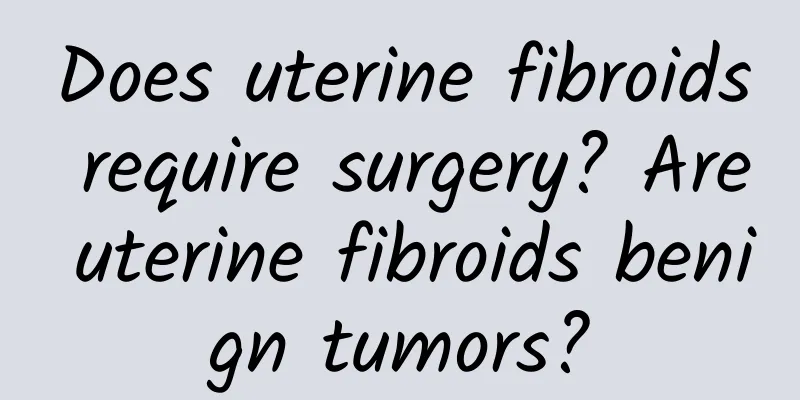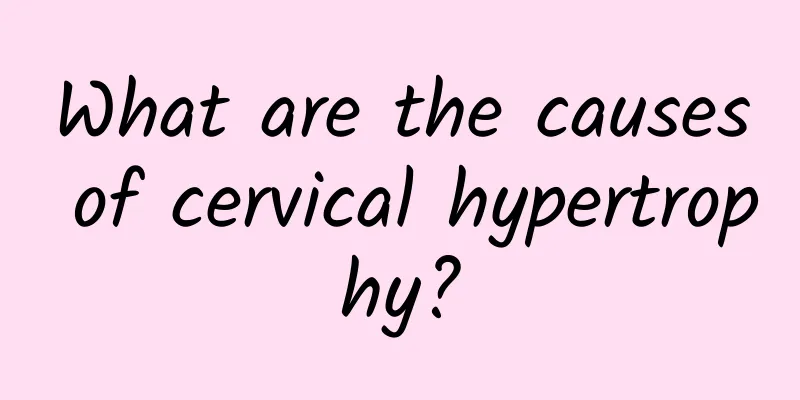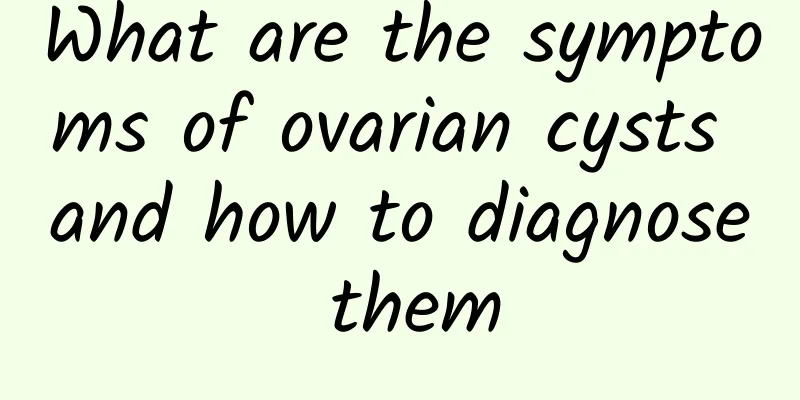Does uterine fibroids require surgery? Are uterine fibroids benign tumors?

|
Clinically, uterine fibroids fall into the category of metrorrhagia, symptoms, and stones in traditional Chinese medicine, and there are many different treatment methods. So, how many surgeries are needed for uterine fibroids? 1. Uterine fibroids are the most common benign tumors of the female genitalia and the most common tumors in the human body. They are formed by the proliferation of uterine smooth muscle tissue, which contains a small amount of fibrous connective tissue. Single or multiple. Depending on the size of the tumor and the location of growth, clinical symptoms such as menorrhagia, dysmenorrhea, leucorrhea, abdominal mass, infertility, and anemia are often present. They are more common in women aged 30 to 50, more common in women aged 40 to 50, and less common in women under 20. Its incidence is difficult to count. According to autopsy data, about 20% of women over 35 years old suffer from uterine fibroids. Since many patients have no symptoms or the fibroids are very small, the incidence reported clinically is much lower than its actual incidence. 2. Surgical treatment of uterine fibroids Generally, if a single fibroid is smaller than 2cm, it can be treated under the guidance of a doctor; if the diameter of a single fibroid is 2cm or more, it has the characteristics of surgery. If the diameter reaches 5cm, surgical treatment is indispensable. Because if the amount of bleeding or menstrual flow is heavy, the anemia time is long, and the drug cannot completely solve it, so this is the best time for uterine fibroid surgery. Common treatments for uterine fibroids include: 1. Drug treatment: mainly short-term treatment, mainly suitable for patients with uterine fibroids, to correct anemia before surgery, reduce uterine volume, avoid intraoperative bleeding, and reduce surgical difficulties; menopausal women, uterus smaller than 10 weeks of pregnancy, mild symptoms; other complications have surgical contraindications. Due to side effects, it should not be used for a long time. 2. Surgical treatment: Surgery is still the most commonly used treatment for uterine fibroids. It is mainly divided into hysterectomy and myomectomy. The surgery can be performed abdominally, laparoscopically or vaginally, depending on the size of the uterus, the location of the fibroids, pelvic and abdominal adhesions, abdominal and vaginal conditions (such as obesity, etc.), the equipment and technical conditions of the doctor and hospital. |
<<: How big is the uterine fibroid before surgery is needed? Common treatments for uterine fibroids
Recommend
Symptoms and causes of premature ovarian failure
The causes of premature ovarian failure involve m...
What are the causes of irregular menstruation?
Many women suffer from irregular menstruation, bu...
Pay attention to several key points after ectopic pregnancy surgery
Once an ectopic pregnancy occurs during pregnancy...
How to relieve menstrual cramps
How to relieve dysmenorrhea? Dysmenorrhea may be ...
Abnormal vaginal discharge caused by tuberculosis
Pulmonary tuberculosis may cause abnormal leucorr...
What are the common symptoms of uterine fibroids?
What are the symptoms of uterine fibroids? Do you...
Is 7 cm considered large for adenomyosis? What should I pay attention to?
Is 7 cm considered large for adenomyosis? What sh...
Detailed explanation of dietary therapy for pelvic inflammatory disease
Detailed explanation of dietary therapy for pelvi...
Overview of Amenorrhea
Amenorrhea is not a disease, but one of the most ...
What are the symptoms of pelvic inflammatory disease?
What are the symptoms of pelvic inflammatory dise...
What are the early symptoms of cervical erosion in women? What are the causes of cervical erosion?
Cervical erosion can be divided into mild cervica...
How many courses of treatment are needed for endometrial tuberculosis?
I believe that many women have gynecological dise...
Do you know the causes of pelvic inflammatory disease?
Do you know the cause of pelvic inflammatory dise...
What are the types of ovarian cysts?
What are the types of ovarian cysts? Experts dete...
Understanding the health regimen for menopausal women
Menopause is a transitional period for women from...









